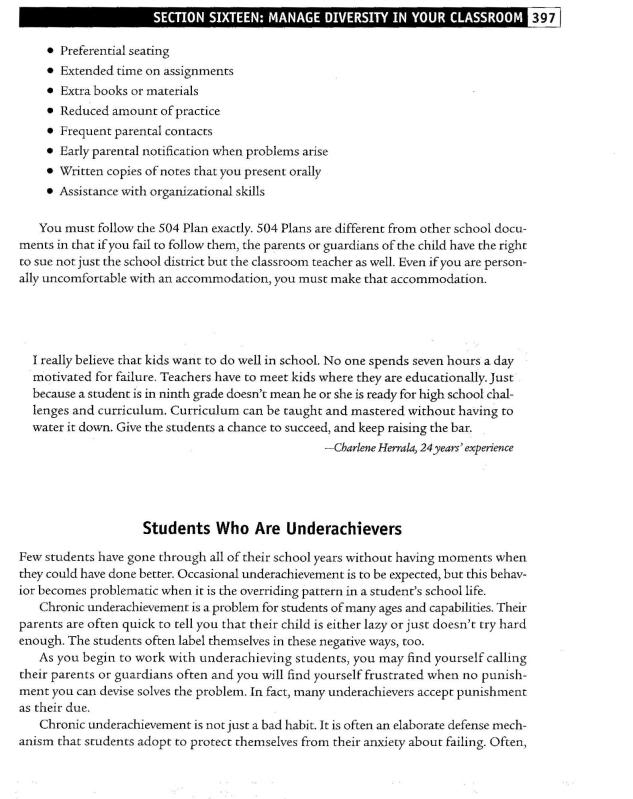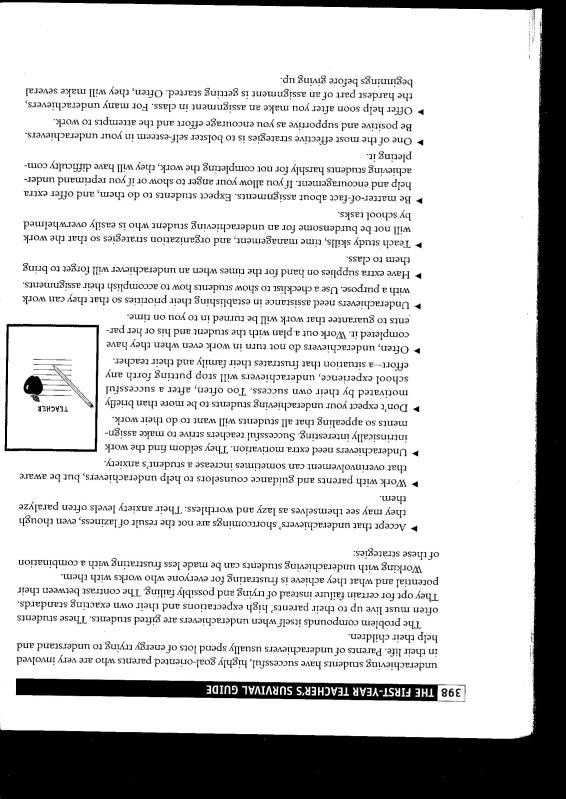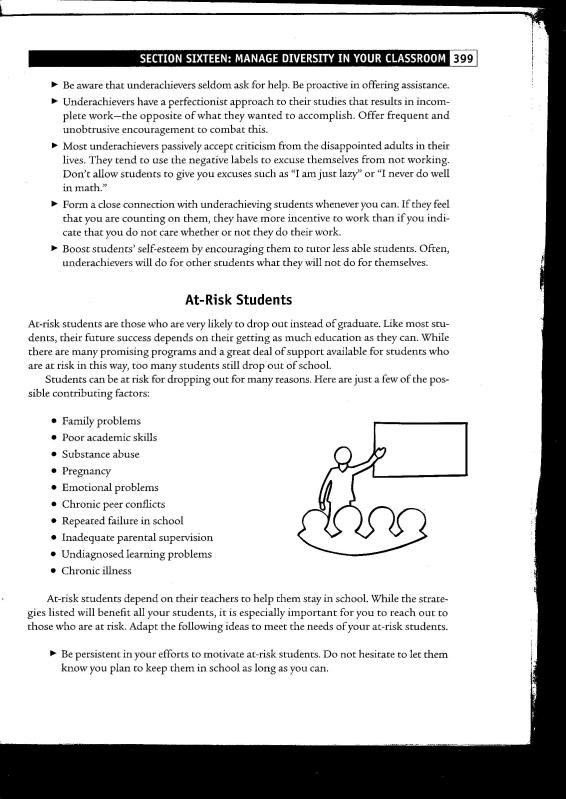TiredSoul
Warrior Mom since 2007
Seems I'm finding out most of difficult child's problems are due to lack of motivation in school. I've known for awhile that he is not motivated. He is not engaged. He does not like school. He does not like his teacher. It's painful - especially since he is only in 3rd grade. I didn't think I would have to hear how much he hates school until at least junior high. He is smart, bright, and capable. He gets by.
How do we motivate our kids to want to do well? Is that the million dollar question? What responsibility does the school share in motivating him or engaging him in learning?
Here is a letter I got today about this issue - sorry in advance for the long post - just looking for some ideas or suggestions.
Thanks,
Jules
***********************************
As I think about your question, I believe that difficult childs difficulties with taking any type of test are consistent with the difficulties he has when doing his class work and pencil/paper tasks. In working with him, I see resistance and lack of motivation when he is required to complete tasks that require rereading, writing responses, applying higher level thinking or making connections. difficult child is capable, a great reader, and quite knowledgeable about topics he is interested in. He just seems to lack the motivation and effort it takes to do many of the tasks required to be successful in the subject areas he doesnt like. If the topic is something that he is interested in then he does put forth more effort. As he gets older there will be more content based curriculum requiring him to perform tasks with more than one step. Currently, he would like to skip all the organizational, developmental, and time consuming steps designed to help him practice and demonstrate mastery of a skill. Unfortunately, without completing and practicing those steps, his final product does not reflect quality or mastery.
At this point in time, I do not think testing accommodations are the answer to inspiring motivation, effort, and the stamina to work hard. I do think that he needs to develop the desire from within himself to perform at a level that accurately reflects his ability. To accomplish those things, he may have to accept the consequences of failure and learn from the mistakes he makes along the way. When he is successful it will be important for him to understand why and apply those things to his performance on the next task. Developing the stamina to stick with a challenge is something that needs to be practiced and it comes from within a person. difficult child has to acknowledge and accept the time and effort it takes to be successful.
As an advocate for difficult child, I believe that he needs to be given more opportunities to develop and accept responsibility for his own learning. He seems to be receiving lots of support from both home and school to encourage success. However, I am not seeing much growth toward developing his inner personal desire, to be an independent and reliable student. I would suggest that there be some discussion with his teachers regarding ways to develop his inner desire (effort and motivation) to become more successful. I would be happy to be part of that conversation.
****************************************
How do we motivate our kids to want to do well? Is that the million dollar question? What responsibility does the school share in motivating him or engaging him in learning?
Here is a letter I got today about this issue - sorry in advance for the long post - just looking for some ideas or suggestions.
Thanks,
Jules
***********************************
As I think about your question, I believe that difficult childs difficulties with taking any type of test are consistent with the difficulties he has when doing his class work and pencil/paper tasks. In working with him, I see resistance and lack of motivation when he is required to complete tasks that require rereading, writing responses, applying higher level thinking or making connections. difficult child is capable, a great reader, and quite knowledgeable about topics he is interested in. He just seems to lack the motivation and effort it takes to do many of the tasks required to be successful in the subject areas he doesnt like. If the topic is something that he is interested in then he does put forth more effort. As he gets older there will be more content based curriculum requiring him to perform tasks with more than one step. Currently, he would like to skip all the organizational, developmental, and time consuming steps designed to help him practice and demonstrate mastery of a skill. Unfortunately, without completing and practicing those steps, his final product does not reflect quality or mastery.
At this point in time, I do not think testing accommodations are the answer to inspiring motivation, effort, and the stamina to work hard. I do think that he needs to develop the desire from within himself to perform at a level that accurately reflects his ability. To accomplish those things, he may have to accept the consequences of failure and learn from the mistakes he makes along the way. When he is successful it will be important for him to understand why and apply those things to his performance on the next task. Developing the stamina to stick with a challenge is something that needs to be practiced and it comes from within a person. difficult child has to acknowledge and accept the time and effort it takes to be successful.
As an advocate for difficult child, I believe that he needs to be given more opportunities to develop and accept responsibility for his own learning. He seems to be receiving lots of support from both home and school to encourage success. However, I am not seeing much growth toward developing his inner personal desire, to be an independent and reliable student. I would suggest that there be some discussion with his teachers regarding ways to develop his inner desire (effort and motivation) to become more successful. I would be happy to be part of that conversation.
****************************************



